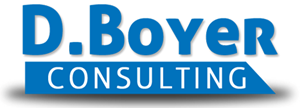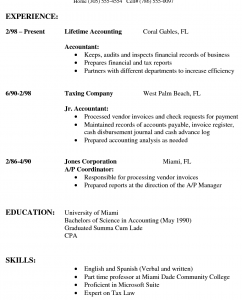Business is mostly conducted via email or phone communications.
Office hours 10:00 a.m. to 6:00 p.m, Mon. - Thurs., and 10:00 a.m. to 2:00 p.m. on Fridays.
SEND EMAIL INQUIRIES DIRECTLY TO:
Dawn.Boyer@me.com
Business is mostly conducted via email or phone communications.
Office hours 10:00 a.m. to 6:00 p.m, Mon. - Thurs., and 10:00 a.m. to 2:00 p.m. on Fridays.
SEND EMAIL INQUIRIES DIRECTLY TO:
Dawn.Boyer@me.com
Business is mostly conducted via email or phone communications.
Office hours 10:00 a.m. to 6:00 p.m, Mon. - Thurs., and 10:00 a.m. to 2:00 p.m. on Fridays.
SEND EMAIL INQUIRIES DIRECTLY TO:
Dawn.Boyer@me.com
Bad resume advice: 15 ‘don’ts’ for resume writing
November 19th, 2012 by Dawn Boyer
Bad resume advice: 15 ‘don’ts’ for resume writing
What is some of the worst resume advice you’ve ever gotten? Did you naively use suggestions from someone you thought knew best (or worse, you paid for the advice)? Some resumes I’ve reviewed recently make me shake my head. Where on earth did the resume owners get their advice! Resume owners respond their resumes were written by certified professionals and paid up to a thousand dollars for the services. My suspicions are the certified professionals believe they know how to do it, but haven’t worked behind the scenes as a recruiter and truly do not know what headhunters need from resumes.
In light of the new wave of layoffs around the country, and in anticipation of those workers who will get downsized after holiday sales die down, it is productive to review what to avoid when writing resumes. These tips will help career seekers to avoid the ‘round file’ when creating or updating their resumes. Don’t make these mistakes when writing that vital career search resume. Don’t…
…add photos, birth dates, social security number (SS#, marital status, number of kids, or a street address. Once you provide this data, identity thieves have all they need (and you don’t know who will see your resume). Recruiters don’t need this data until an offer letter is written. It’s illegal for an employer to request a SS# – even for background checks, until they have provided a contingency offer letter, with a employment caveat based on passing the background check, and received the candidate’s signed authorization.
…use an Internet based template. The resume will look like every other carbon copy resume and will not stand out from the ‘herd.’ Use plain outlines and easy to read lists.
…leave out education and training – separate them into two sections, include dates, spell out the degree (Bachelor of Science), and include discipline(s), full name of the school, city, and state. Younger job seekers might benefit from noting a GPA (3.00+) to emphasize academic achievements versus lack of experience (number of years worked).
…embellish; ensure any numbers have a ‘~’ (tilde) representing ‘approximately’ for numbers, so later confirmations won’t indicate the applicant was fudging the metrics.
…use a professional (story) writer for your resume; they are accustomed to writing adjective-rich, and subjective stories versus writing a concise, bulleted list of achievements; and don’t hire a resume writer just because they are certified – these can be purchased for under $300 and don’t guarantee expertise in writing for a niche business industry.
…add graphics – butterflies, lines, boxes, and/or IT certification logos, which get stripped in resume database uploads wasting valuable white space preferred for text information.
…list experience you don’t have. If you’ve touched it or looked over someone’s shoulder, mention you are ‘familiar with’ or have ‘baseline knowledge’ of, but not experience.
…list fast-food experience unless that is your career. Note dates employed in Retail Food Services, as Customer Service Representative, then follow with the wording: “non-career related job experience” to define and fill in the gap.
…settle for a one-page resume, but don’t make it 10 to 12 pages long, illustrating an inability to write concisely. A guideline is about one page per ten years of experience.
…use a text font so small the reader needs a magnifying glass or use a quarter-inch margin to fit the resume on one page. Its going to be uploaded and converted to text with larger font anyway, so increase text to 10 or 12 point and make margins one inch.
…print a resume on card-stock or brightly colored paper to stand out. The ‘stand-out’ will result in the opinion you are not professional.
…send out thousands of resumes. This expands a career search to unmanageable levels. Don’t waste money on a resume-blast service. Recruiters don’t have time to open them and most likely auto-dump them into a proprietary database and never read them.
…send a resume with the same job title objective to Pizza Hut as sent to Microsoft; change the job title objective. Don’t write the objective as a huge paragraph.
…make the resume read like a letter from home. Recruiters need to quickly glance through a tightly-written, bulleted, listings of achievements, not a mass of dense prose.
…call a company to ask about the position. Most of the time, recruiters often have already posted all they know, and may not know about positions posted by recruiter(s) in the same company.
Write your resume carefully and avoid the pitfalls that would push it into the trashcan. Use these tips to ensure your resume is more professional and eye-catching than your competition.
Dawn Boyer is the owner of D. Boyer Consulting (https://dboyerconsulting.com), a career services coach, social media management, human resources and business development consulting firm. She can be reached at Dawn.Boyer@DBoyerConsulting.com for resume writing services or LinkedIn training.
Readers Comments
Bad resume advice: 15 ‘don’ts’ for resume writing
November 19th, 2012 by Dawn Boyer
Bad resume advice: 15 ‘don’ts’ for resume writing
What is some of the worst resume advice you’ve ever gotten? Did you naively use suggestions from someone you thought knew best (or worse, you paid for the advice)? Some resumes I’ve reviewed recently make me shake my head. Where on earth did the resume owners get their advice! Resume owners respond their resumes were written by certified professionals and paid up to a thousand dollars for the services. My suspicions are the certified professionals believe they know how to do it, but haven’t worked behind the scenes as a recruiter and truly do not know what headhunters need from resumes.
In light of the new wave of layoffs around the country, and in anticipation of those workers who will get downsized after holiday sales die down, it is productive to review what to avoid when writing resumes. These tips will help career seekers to avoid the ‘round file’ when creating or updating their resumes. Don’t make these mistakes when writing that vital career search resume. Don’t…
…add photos, birth dates, social security number (SS#, marital status, number of kids, or a street address. Once you provide this data, identity thieves have all they need (and you don’t know who will see your resume). Recruiters don’t need this data until an offer letter is written. It’s illegal for an employer to request a SS# – even for background checks, until they have provided a contingency offer letter, with a employment caveat based on passing the background check, and received the candidate’s signed authorization.
…use an Internet based template. The resume will look like every other carbon copy resume and will not stand out from the ‘herd.’ Use plain outlines and easy to read lists.
…leave out education and training – separate them into two sections, include dates, spell out the degree (Bachelor of Science), and include discipline(s), full name of the school, city, and state. Younger job seekers might benefit from noting a GPA (3.00+) to emphasize academic achievements versus lack of experience (number of years worked).
…embellish; ensure any numbers have a ‘~’ (tilde) representing ‘approximately’ for numbers, so later confirmations won’t indicate the applicant was fudging the metrics.
…use a professional (story) writer for your resume; they are accustomed to writing adjective-rich, and subjective stories versus writing a concise, bulleted list of achievements; and don’t hire a resume writer just because they are certified – these can be purchased for under $300 and don’t guarantee expertise in writing for a niche business industry.
…add graphics – butterflies, lines, boxes, and/or IT certification logos, which get stripped in resume database uploads wasting valuable white space preferred for text information.
…list experience you don’t have. If you’ve touched it or looked over someone’s shoulder, mention you are ‘familiar with’ or have ‘baseline knowledge’ of, but not experience.
…list fast-food experience unless that is your career. Note dates employed in Retail Food Services, as Customer Service Representative, then follow with the wording: “non-career related job experience” to define and fill in the gap.
…settle for a one-page resume, but don’t make it 10 to 12 pages long, illustrating an inability to write concisely. A guideline is about one page per ten years of experience.
…use a text font so small the reader needs a magnifying glass or use a quarter-inch margin to fit the resume on one page. Its going to be uploaded and converted to text with larger font anyway, so increase text to 10 or 12 point and make margins one inch.
…print a resume on card-stock or brightly colored paper to stand out. The ‘stand-out’ will result in the opinion you are not professional.
…send out thousands of resumes. This expands a career search to unmanageable levels. Don’t waste money on a resume-blast service. Recruiters don’t have time to open them and most likely auto-dump them into a proprietary database and never read them.
…send a resume with the same job title objective to Pizza Hut as sent to Microsoft; change the job title objective. Don’t write the objective as a huge paragraph.
…make the resume read like a letter from home. Recruiters need to quickly glance through a tightly-written, bulleted, listings of achievements, not a mass of dense prose.
…call a company to ask about the position. Most of the time, recruiters often have already posted all they know, and may not know about positions posted by recruiter(s) in the same company.
Write your resume carefully and avoid the pitfalls that would push it into the trashcan. Use these tips to ensure your resume is more professional and eye-catching than your competition.
Dawn Boyer is the owner of D. Boyer Consulting (https://dboyerconsulting.com), a career services coach, social media management, human resources and business development consulting firm. She can be reached at Dawn.Boyer@DBoyerConsulting.com for resume writing services or LinkedIn training.











